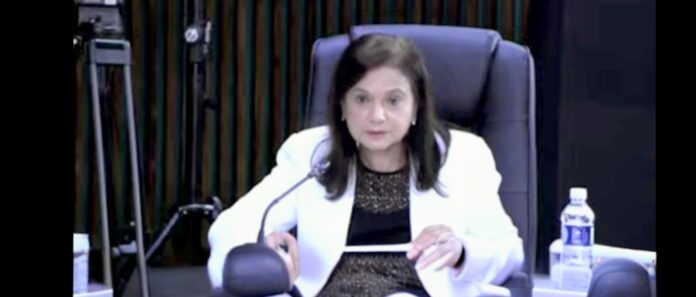Shamila Batohi, the National Director of Public Prosecutions [NDPP], has told the Nkabinde inquiry that a panel she appointed to review racketeering authorisations in the KwaZulu-Natal Cato Manor matter concluded that those authorisations were invalid.
Testifying before the inquiry on Friday, Batohi said she acted on the panel’s recommendations only after satisfying herself that its work was thorough and reliable.
Selected panel compiled memo
Under questioning from evidence leader Advocate David Mahlomanyane, Batohi explained that the internal memorandum before the inquiry had been compiled by a panel she convened shortly after taking office in 2019.
The panel was chaired by Advocate Rodney de Kock. And it included Advocate Ivy Thenga, the Director of Public Prosecutions Advocate Shareen Riley, and Advocate Elijah Mamabolo.
Batohi said each member was selected for their seniority and expertise in organised crime and racketeering.
Mamabolo, she noted, was appointed specifically because of his expertise in racketeering matters.
She confirmed that an earlier team of prosecutors was disbanded when she assumed office. The team had been assembled to deal with litigation brought by former KZN Hawks head Major-General Johan Booysen. Those prosecutors, she said, were returned to their provincial posts.
Summarising the panel’s findings, Batohi said it concluded that the racketeering authorisations issued by former acting NDPP Nomgcobo Jiba and later by former NDPP Shaun Abrahams were invalid.
Panel’s recommendations
The panel also recommended that racketeering charges against all accused persons be withdrawn.
Asked whether she had implemented these recommendations, Batohi replied that she had.
She withdrew the NPA’s opposition to Booysen’s review application. Also withdrew the authorisations themselves. And she wrote to acting KwaZulu-Natal DPP, Advocate Elaine Zungu. She directed her to reassess the outstanding dockets and take decisions on each.
In that letter, Batohi advised Zungu that the panel had found insufficient evidence against Booysen in respect of other charges.
When Mahlomanyane asked why Booysen had been singled out, she replied that she was not sure.
“Perhaps it was because he had brought the review application,” she replied.
Batohi said she was confident in the panel’s conclusions.
She told the inquiry that the KZN DPP declined to prosecute in all but one matter.
The single case that did proceed to trial ended in an acquittal.
Andrew Chauke allegations
Turning to allegations against Johannesburg DPP Andrew Chauke, Batohi said the complaint against him was that he had assumed a de facto role of the DPP in the prosecution of alleged crimes committed in KwaZulu-Natal, over which he had no jurisdiction.
She said Chauke had settled the affidavit of Advocate Jiba in related litigation. And also that its allegations were found to be false.
Chauke later described himself in a submission to the Zondo commission as merely a team coordinator. However, Batohi told the inquiry that the evidence would show he had acted instead as the de facto DPP in this matter, without the legal authority.
She added that documentation demonstrated that Chauke and not the KZN DPP had effectively taken charge of the prosecution team pursuing racketeering charges against members of the Cato Manor unit.



